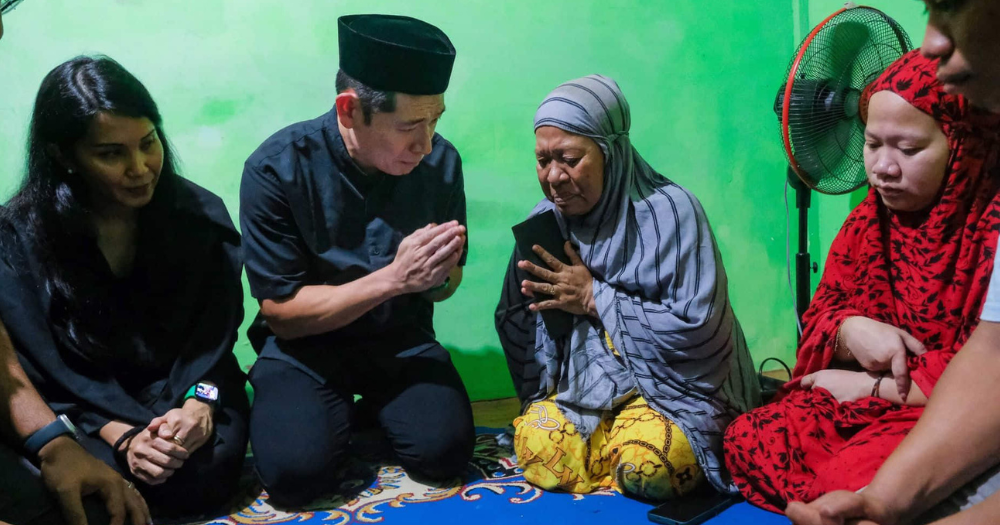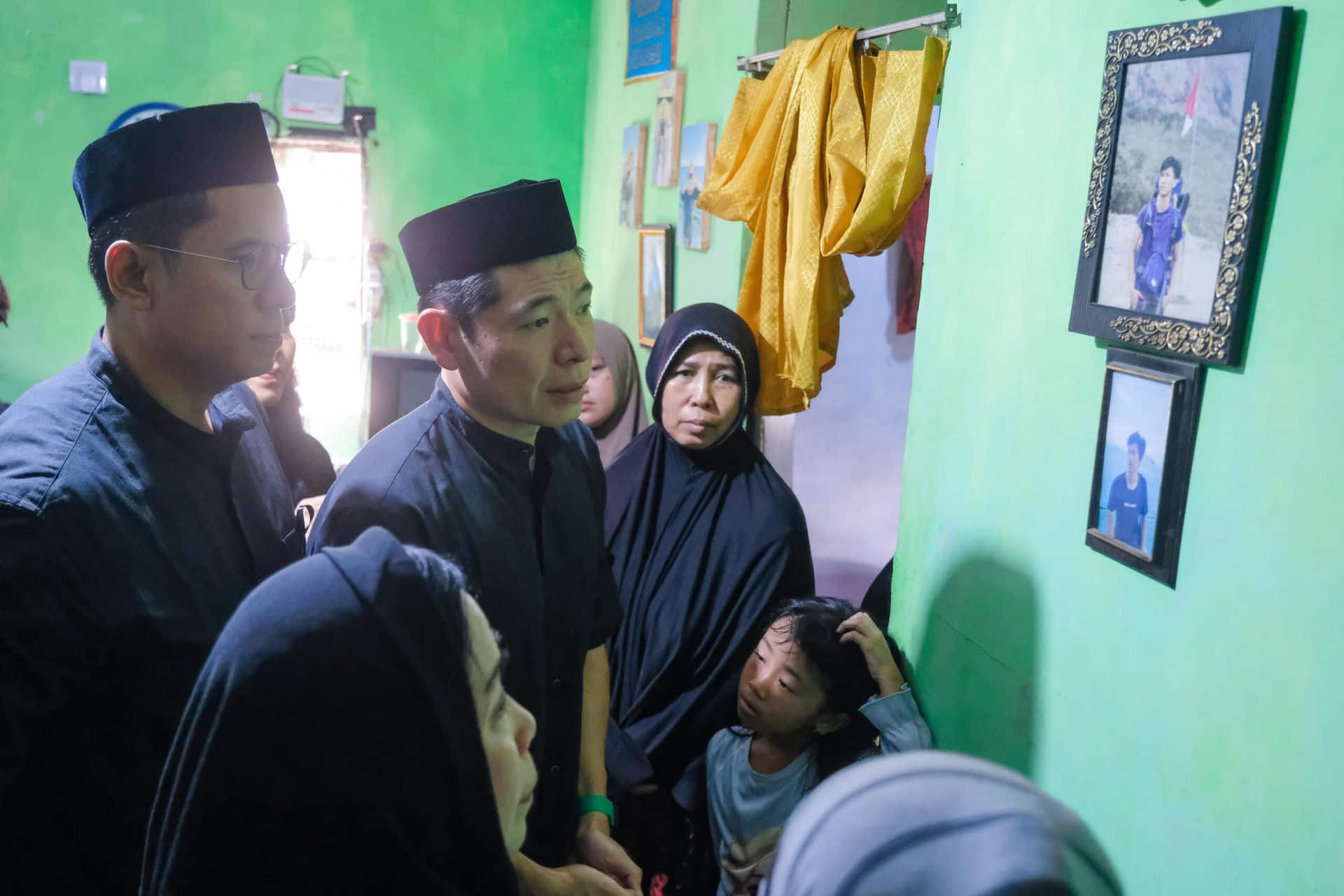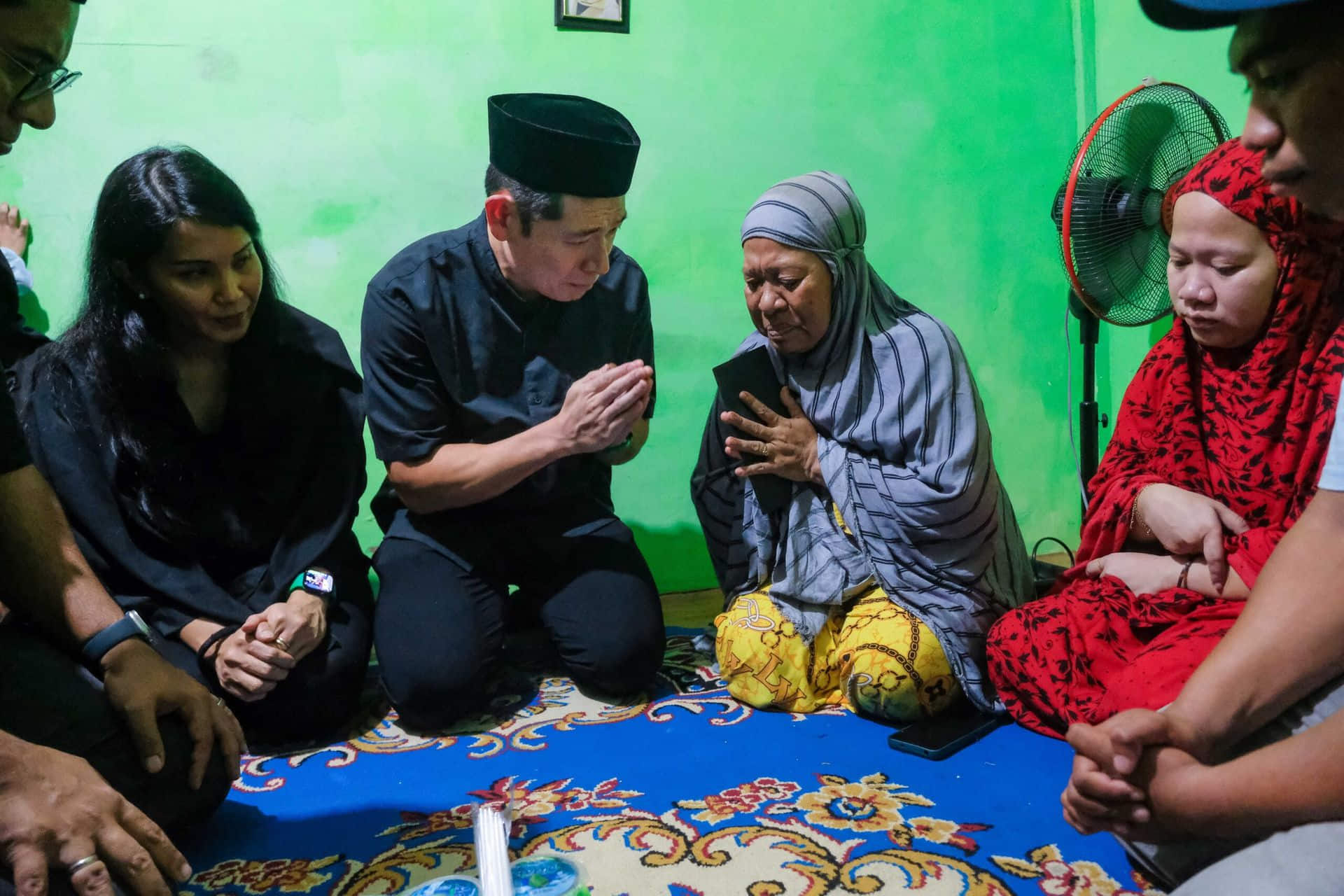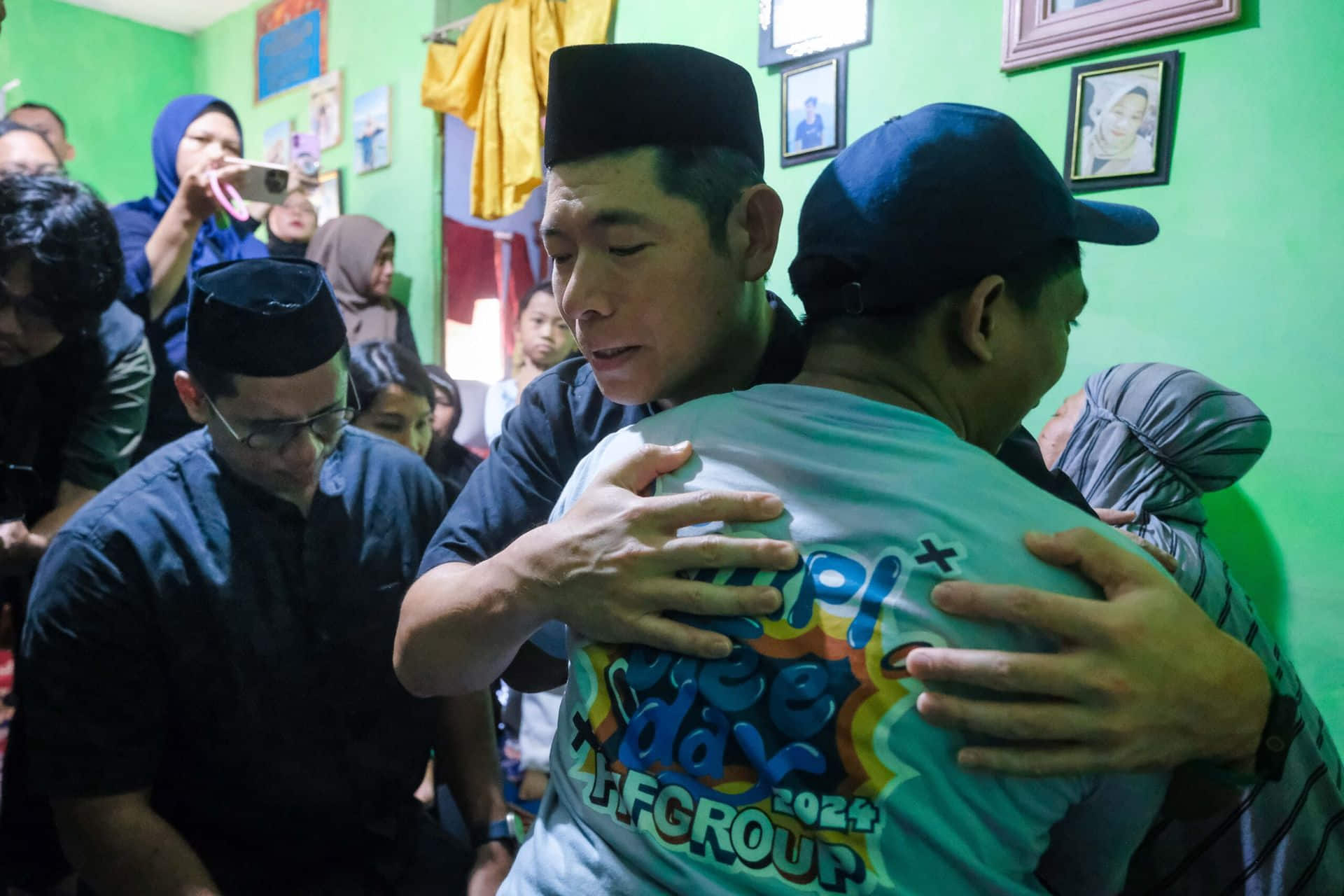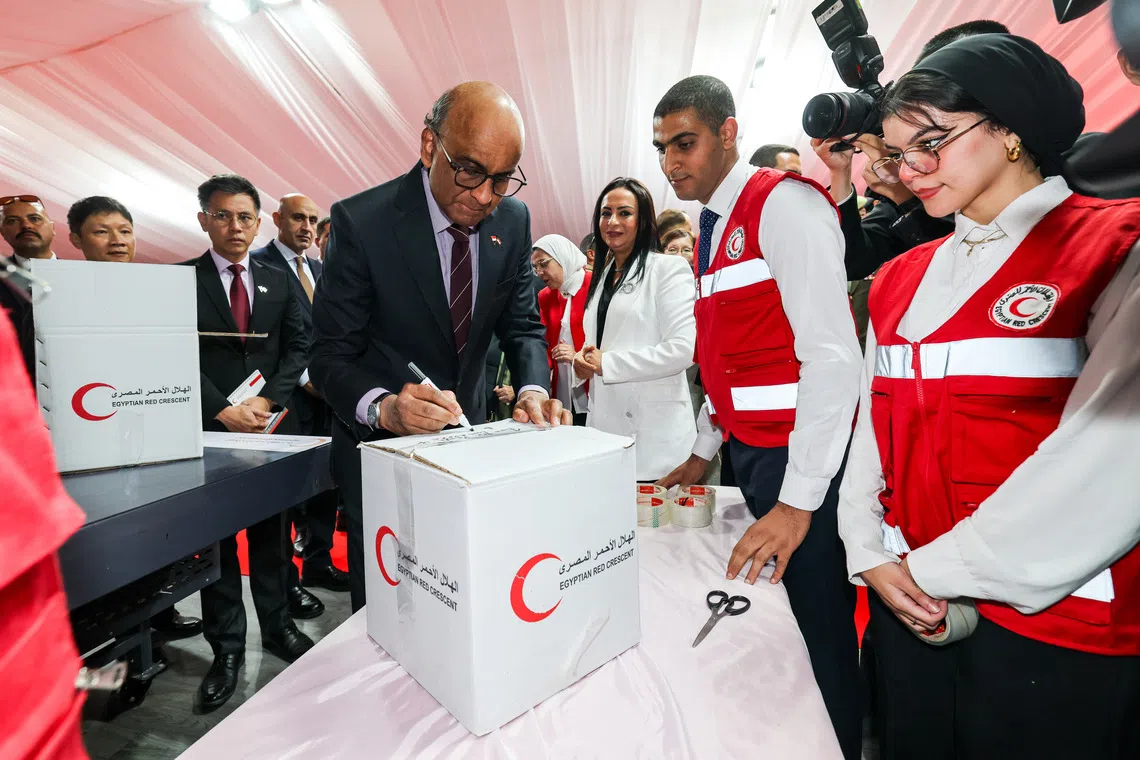Me & My Money: Investments support finance exec’s philanthropic commitments
Finance executive Caesar Sengupta's investments underpin several commitments to non-profits here and overseas that will be in place for a number of years. ST PHOTO: LUTHER LAU
Prisca Ang
Business Correspondent
Nov 10, 2024
SINGAPORE – Finance executive Caesar Sengupta plans to donate most of his family’s wealth during his lifetime, a process that is already in motion.
His investments underpin several commitments to non-profits in Singapore and overseas that will be in place for a number of years.
Mr Sengupta, 48, says: “For my wife and I, in addition to ensuring we give our kids the best educational opportunities and taking care of our loved ones, it is really important that we contribute to society meaningfully.”
That philanthropic mission has shaped his investing strategy. He generally avoids investing in individual stocks, favouring a more passive and systematic approach. Conservative investments make up 30 per cent to 40 per cent of his portfolio, with the remainder focused on high-growth strategies.
Over 90 per cent of Mr Sengupta’s financial assets are managed by the digital wealth platform Arta Finance, of which he is chief executive and co-founder.
The company launched the platform globally in Singapore on Oct 11, a year after its US debut. In September, it announced an undisclosed investment from the Economic Development Board’s strategic investment arm.
Arta’s platform allows accredited investors to access alternative assets such as private equity and get a line of credit against their assets, among other solutions, without the sales pressure and high fees seen at some other institutions.
The company, dual-headquartered in the United States and Singapore, is also partnering banks to enhance lenders’ wealth management offerings.
Mr Sengupta started Arta in 2021 after 15 years at Google, where he worked on the Chrome operating system with Mr Sundar Pichai, now chief executive, and several colleagues who would later co-found Arta.
Along the way, he discovered what he described as his lifelong passion – using technology to break down barriers.
“Our mission was simple yet ambitious: How could we make computers easier to use, more affordable and faster, particularly for students?” said Mr Sengupta, who also led Google’s efforts in payments and building products for the next generation of internet users.
“Today, 15 years later, Chromebooks have become the leading device used in schools worldwide, playing a key role in making technology more accessible and education more inclusive.”
Mr Sengupta, who was born in India, has a master’s degree in computer science from Stanford University, where he met his wife, a Singaporean who was studying international policy on a government scholarship. They have a daughter, 17, and son, 14.
After Stanford, Mr Sengupta stayed in the US to work at HP Labs. He moved to Singapore for the first time in 2002, got married and joined local start-up Encentuate, which IBM later acquired.
Soon came a spell in London, when his diplomat wife was posted to the Singapore High Commission there. Mr Sengupta decided to pursue an MBA at the University of Pennsylvania’s Wharton School, before joining Google as one of its first product managers in Europe.
Then he moved to the firm’s Silicon Valley headquarters and began working for Mr Pichai before relocating to Singapore in 2014 to helm Google’s project focusing on the next billion internet users.
Q: What is in your personal portfolio?
A: (My wife and I) have made significant multi-year commitments to a few non-profits, and intend to give away the vast majority of our wealth in our lifetimes.
In addition to my founding stake in Arta, all my liquid assets are managed through the platform. The majority of my assets are either allocated to Arta’s automated strategies or invested in the exclusive private equity funds and structured investments offered by Arta.
The conservative part of my portfolio, combined with property holdings, allows me to take a higher-risk, growth-focused approach for the rest of my portfolio.
I’ve also invested in a few start-ups founded by friends, some venture capital (VC) funds, and property in Singapore. Before Arta, we relied on one of the top Swiss private banks for wealth management. I have two condo units in Singapore – we live in one, and my parents live in the other.
The growth portion of my portfolio, deliberately kept largely liquid, funds my current and future philanthropic commitments. It is invested in Arta’s Satellite Portfolios, which function like personalised mini exchange-traded funds, fully managed by Arta.
These portfolios allow me to invest in long-term trends I have high conviction in, such as growth of the cloud and artificial intelligence, and the rise of Asia.
The biggest causes my wife and I care about are vulnerable children and income inequality. We support a number of non-profits, including Unicef’s Project Lion which aims to protect children living in India without parental care.
My wife and I recently set up the non-profit EveryChild.SG, which is working towards increasing Singapore’s focus on holistic child development through policy research, public education and advocacy.
Meanwhile, we have an insurance policy and a will in place. The policy serves as the main source of funds to support our children and immediate families in the event that something happens to us.
More On This Topic
Me and My Money: US-listed company’s CEO prizes experiences over possessions
Me & My Money: Fintech exec started developing her investing acumen as a teen
Q: What was your biggest investing mistake? Which was your best investment?
A: My biggest mistake was investing in a discretionary mandate with a Swiss private bank. The portfolio performed abysmally over the past few years, losing nearly 10 per cent – amounting to a six-figure loss – despite being categorised as low risk. The bank’s excessive fees, which exceeded 1 per cent, added to the damage.
From this, I learnt to prioritise passive and systematic investment strategies, base decisions on historical analysis and, most importantly, always keep an eye on fees.
As for my best investment, I believe it’s going to be Arta. Start-ups and entrepreneurship, while high risk, are the biggest methods of wealth creation in the modern economy. At this point, Arta is a VC-funded private company but hopefully, when it goes public, it will create significant value for our investors and team members.
Q: Describe your lifestyle, and how your growing-up years shaped your perspective on money.
A: We are fortunate to have enough to support our current lifestyle and retirement comfortably. We’ve been mindful of our spending, so from a purely financial standpoint, we could retire at any time. The ability to live off our savings was a key factor in my decision to start a company.
We have no plans to retire yet. My wife and I expect to continue working and contributing well into our 70s, likely shifting our focus more towards philanthropy and social service as we grow older. Once the kids are grown up, we’d also love to travel more.
We live in the same freehold condo as my wife’s parents and sister. I drive a Tesla because it’s more environmentally friendly and much cheaper and easier to maintain than a petrol car.
I grew up in a middle-class family in Delhi. My father worked as an executive in an airline and my mother was a teacher. With a large extended family to support, we didn’t have much, but my parents made sure that my younger brother and I had access to the best educational opportunities.
I didn’t grow up learning about investing or money management in the traditional sense. What I did learn from my parents, though, was how to cover your needs, and that wealth isn’t just about accumulating money – it’s about ensuring security for the future and having the ability to give back.
It wasn’t until later, through my work and industry exposure, that I began to understand the nuances of investing. I got a glimpse of how the ultra-wealthy manage their money, and I also wanted to leverage that knowledge and bring it to more people.
His top investing tips
- Prioritise passive, systematic strategies. I believe in data-driven investment strategies over actively managed ones offered by high-priced advisers, which often lack transparency.
- Pay close attention to fees. Even small percentages can significantly erode your long-term gains.
- Diversify with a long-term view, and invest in industries or trends you understand deeply.










